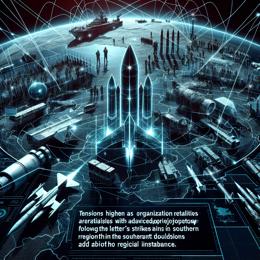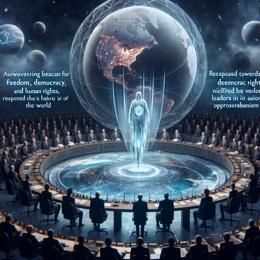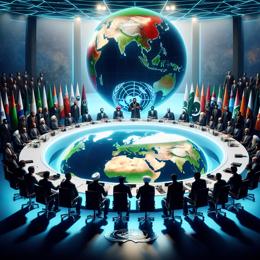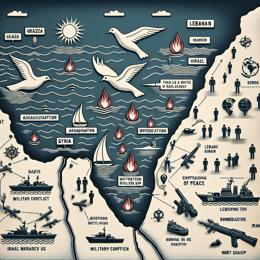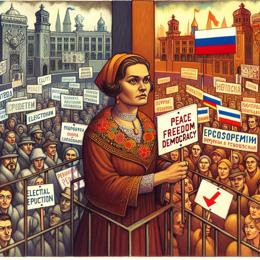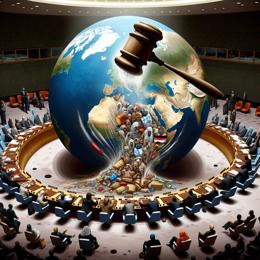Image created by AI
Russia Seeks to Remove Taliban from Terrorist List Amid Engagements
In an evolving geopolitical landscape, Russia has expressed its intent to remove the Taliban from its list of terrorist organizations, seeking constructive dialogues to navigate pressing regional matters. Kremlin spokesperson Dmitry Peskov emphasized the importance of engagement with Afghanistan’s current de facto authorities, signaling a potential shift in the nation's foreign policy and counter-terrorism strategy.
This proposed reformation of relations with the Taliban, which escalated to power following the U.S.-led coalition's departure from Afghanistan in 2021, highlights the complexities faced by countries bordering the conflict-ridden state. Russia has long branded the Taliban as a terrorist organization, aligning with the international community's stance during the militant group's previous regime and subsequent insurgency.
The recent tragic event in Moscow, where over a hundred individuals perished in an attack claimed by Islamic State affiliates, underscores the urgent security challenges confronting Russia. While Islamic State Khorasan, the Afghani branch of the terrorist network, has been implicated, Russian officials are also investigating a potential Ukrainian link, accusations that both Kyiv and the U.S. have firmly dismissed.
Peskov's comments on the necessity for dialogue with the Taliban are indicative of Russia's strategic imperative to stabilize its periphery and preempt the spill-over of extremism into its domain. The reassessment of the Taliban's status, therefore, is not merely a diplomatic maneuver but a potential recalibration of Russia’s defense against transnational terrorist threats.
However, details on the nature of the exact "pressing issues" that require Russia's direct communication with the Taliban remain undisclosed. The alignment of policies and cooperation against common threats could herald a new chapter in Afghanistan’s international isolation, one where Russia emerges as a key player in post-conflict reconstruction and peace-building efforts.
The Kremlin's acknowledgment of the Taliban’s authority, albeit de facto, could pave the way for other nations to adopt a more pragmatic approach towards the group that has struggled for international recognition and financial support to govern a nation in crisis.
The move, if brought to fruition, could be seen as a pragmatic recognition of the reality on the ground, whereby direct dialogues become essential for ensuring that Afghanistan does not transform into a sanctuary for extremism that threatens regional security.


